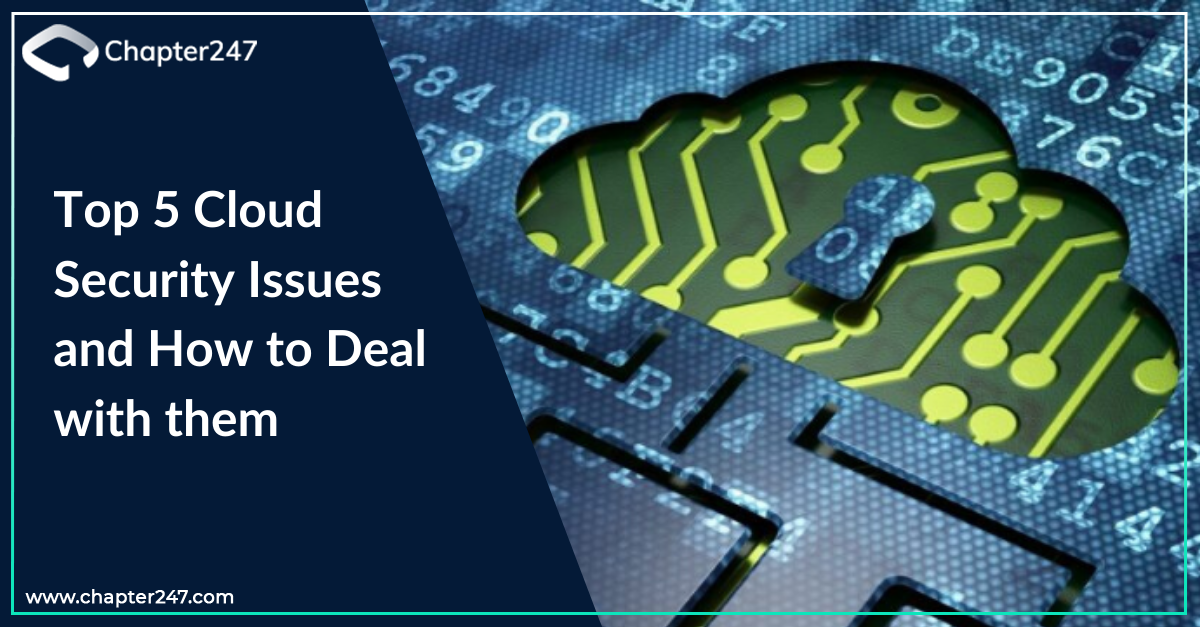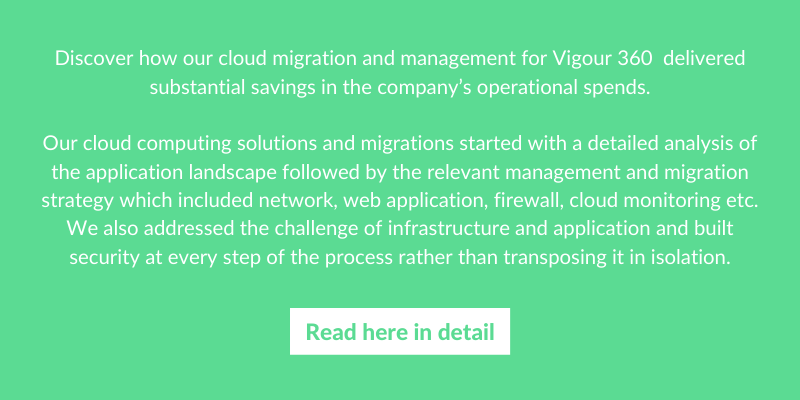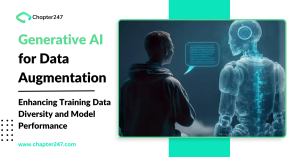As organizations move towards cloud computing, cloud security remains a major issue that needs to be dealt with.
Cloud computing has changed the way enterprises manage and process large-scale applications and create value out of it. A cloud ecosystem leverages a shared IT infrastructure with a sturdy internet connection pool to let users utilize multiple apps for easing workload challenges from anywhere. Cloud technologies offer elasticity, on-demand availability, and superior IT capabilities urging organizations to adopt it more.
Cloud computing trends clearly show a robust year-over-year growth ever since it became mainstream. Cisco suggests that Cloud data centers will process 94% of workloads in 2021.
Top 5 cloud security issues with solutions
Digital transformation has fuelled a far-reaching adoption of cloud computing letting organizations leverage virtual infrastructure and accelerate the speed for innovation. Cloud computing has ushered in a new age of transmitting and storing data, but despite this 360-degree transformation with the way data is stored, companies are still hesitant to adopt the disruptive technology due to its mounting security concerns. We have always believed that in order to put such ambiguities to rest, it is important that we proceed only after chalking out a definitive plan.
There are some points of concern which need to be highlighted. If there are issues, there are solutions, and at Chapter247 we deem it your right to know what we as an organization would action and recommend.
Secure APIs:
In 2018 alone, we have experienced more than half a dozen data breaches and security issues glaring at the poor API security. Altogether due to poor and API, security-sensitive data was exposed exposing the major loopholes. API or application programming interfaces have become a new rage as developers rely on it to support the integration of products and services. In a way, these APIs are the frontal portion of the application and by default, they have to be accessed externally. Cloud computing solutions also allow third-party access by exposing the APIs but many DevOps and companies overlook the criticality of this and fail to secure APIs causing untraceable data breaches leading to losses
In order to undertake solutions to tackle the breach, it is important to follow security by design approach to application development. This approach will help companies to understand the security requirements around API. It will help them build adequate authentication, encryption, and authorization. As a company that follows this approach we also make sure that the code itself does not contain any kind of loopholes or vulnerabilities in the SDLC.
Data Breach:
When sensitive information or protected confidential data is accessed in an unauthorized manner it is called a data breach. The same could happen as a result of human error or with an intention to endanger the system and for gaining access to trade secrets or any such material not for the public eye. Whatever it is, when the system is lying vulnerable, it is liable for attacks. Despite stricter laws guiding data breaches, there are some steps that need to be followed as a part of the solution.
- Only people authenticated to access the network should do so.
- The access should be framed so that the users can only access the accessible data.
- Strict monitoring of all network activity and intruder detection.
- Thoroughly encrypt all the data that needs protection.
- Authentication of software and the patches.
- The entire process of seeking request permission should be formalized.
Seizing of Cloud services
Whenever a cloud account is controlled over, the attacker might masquerade the account owner to rob information and conduct unwanted activities that can even compromise the trust the company has earned. Despite cloud computing offering numerous benefits, it also encourages cyber criminals as a major proportion of data is stationed in one place.
In order to fight these attempts, Chapter247 recommends and follows these measures:
- We assure our clients that only trustworthy and reliant employees are accessing servers.
- We also provide a strict authentication feature of the cloud users.
- We provide a secure back up for the data so that no loss is experienced.
- We restrict IP addresses for cloud applications so that only corporate networks are used.
- We have made compulsory multi-factor authentication like OTP generated via tokens and biometrics.
- We offer compulsory encryption of data before it gets transferred to the cloud.
Data Loss:
Other than the issue of malicious attacks, data can be lost due to accidental deletions. Hence it is better that you follow the best practices for preventing such harms that can disarm business continuity. Data loss and leakage are some of the biggest security concerns of security professionals which can lead to customers losing faith in the organization. Despite implementing cloud computing if there is no Data Loss Prevention plan, they may face several dangers of sacrificing critical information.
We recommend the following practices:
- Data protection at the disk level or through scaled-out storage.
- Regular backup of data with cost-effective mediums.
- Checkpoint replication and journalized system of maintaining files to recover data easily.
- Constant security enhancement filters that will keep your security systems updated and ready to handle any kind of attack.
Advanced Persistent threats:
With the motive of attacking information based on IP’s, user data, and much more, multi-vector attacks have become common. Attackers attack the most vulnerable parts to infect with malware and gain dominance over the machines. For advanced persistent threats these protective measures are needed:
- The need for a multi-layered security strategy with data control policies.
- The use of firewalls, hardening of servers and malware scanning.
- Regular update of software with post-event evaluation to avoid repetition.
- Blocking of all entry points with defense methods installation.
Identifying cloud assets
There are a considerable number of cloud applications which the companies are using across its departments. It becomes manual labor to keep track of who is accessing the system and wherein the entirety of the organization. Companies who migrate from on-premise infrastructure to the cloud may soon discover that it will be a struggle to maintain visibility of cloud assets as each department is free to deploy SaaS and IaaS solutions. Hence the cloud assets clearly need a security solution that is customized according to the new ecosystem to provide an overall security posture. If this is not present, imagine the kind of data risk involved.
We recommend a solution that includes auto-discovery technology use through API. This will help the organization to manage an inventory of their network and workloads without any risk. It will give a comprehensive view of all the deployments. It is also a good solution to adopt a full-stack security tool that will endow the system with a precise single pane of glass view to counter the risks of migration.
IT Consulting organization Chapter247: Managing your cloud infrastructure efficiently
Our team of cloud experts and our prolific IT consulting services assists brands in end-to-end cloud infrastructure from designing to testing and deployment to management. Our range of cloud-computing solutions include:
- Setting up of the relevant cloud infrastructure and installation of the required software and custom DevOps based on business needs.
- Our team of cloud experts will set up the needed hardware and software configuration as per the business requirements.
- Regular and continuous monitoring so that the periodic cloud services cost and performance is optimized effectively.
- We manage the resources, monitor data traffic, and workflow so that the cloud environment has only the required service.
- Our team ensures stringent management of sensitive data with advanced security layers.
- Our deep-set expertise in analytics and heightened customer delight will ensure application speed with cloud migration services. Our cloud migration services will deliver complex migrations in a hassle-free manner. The transition to the cloud will be faster, cost-effective with zero negative impact.








